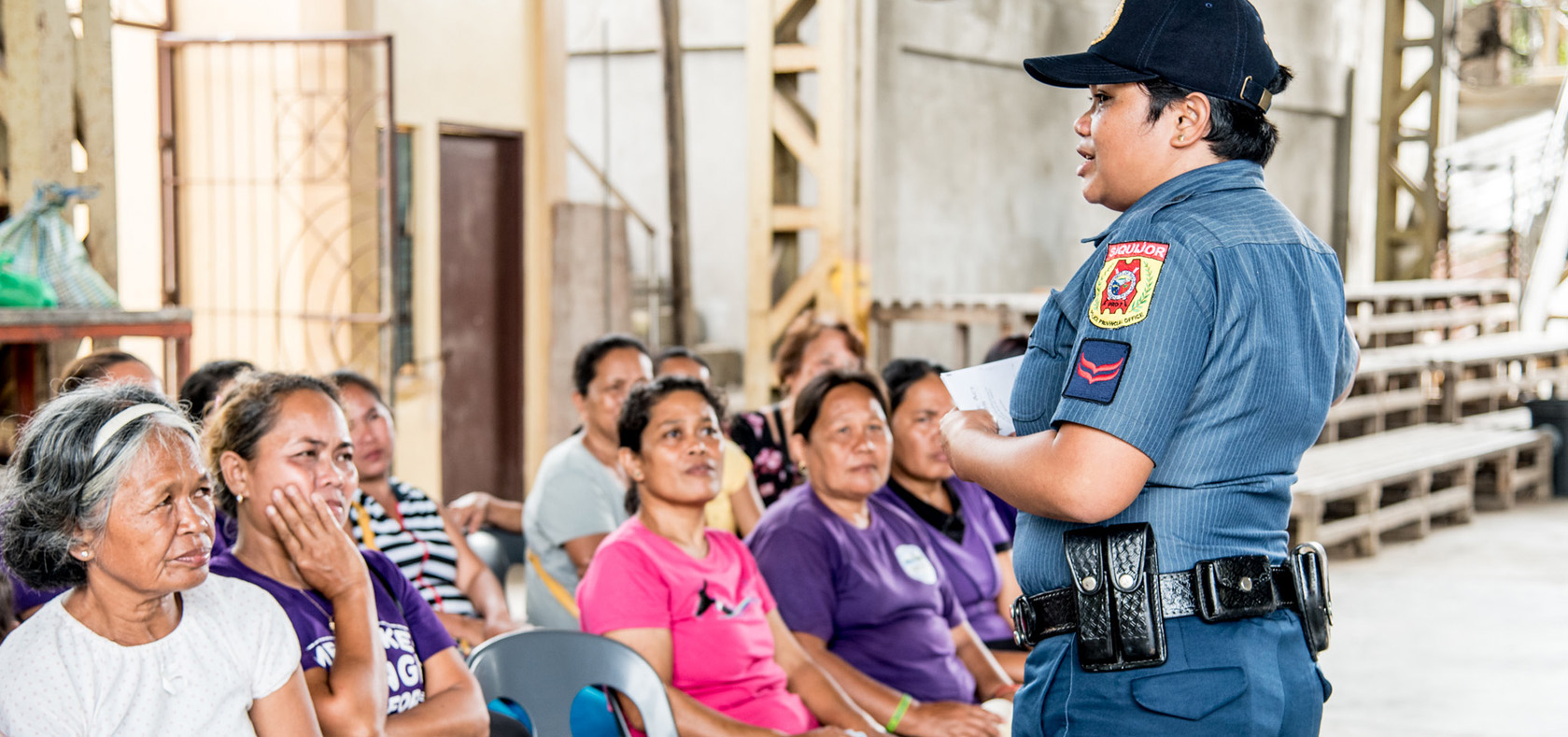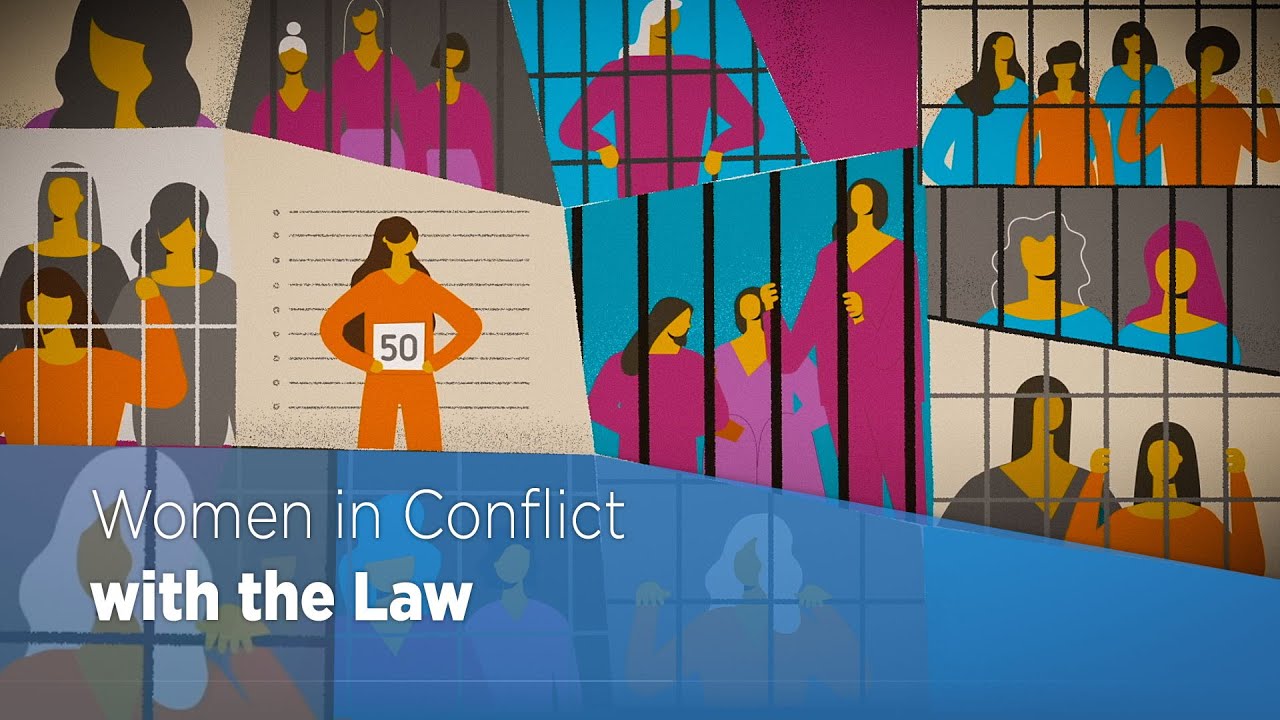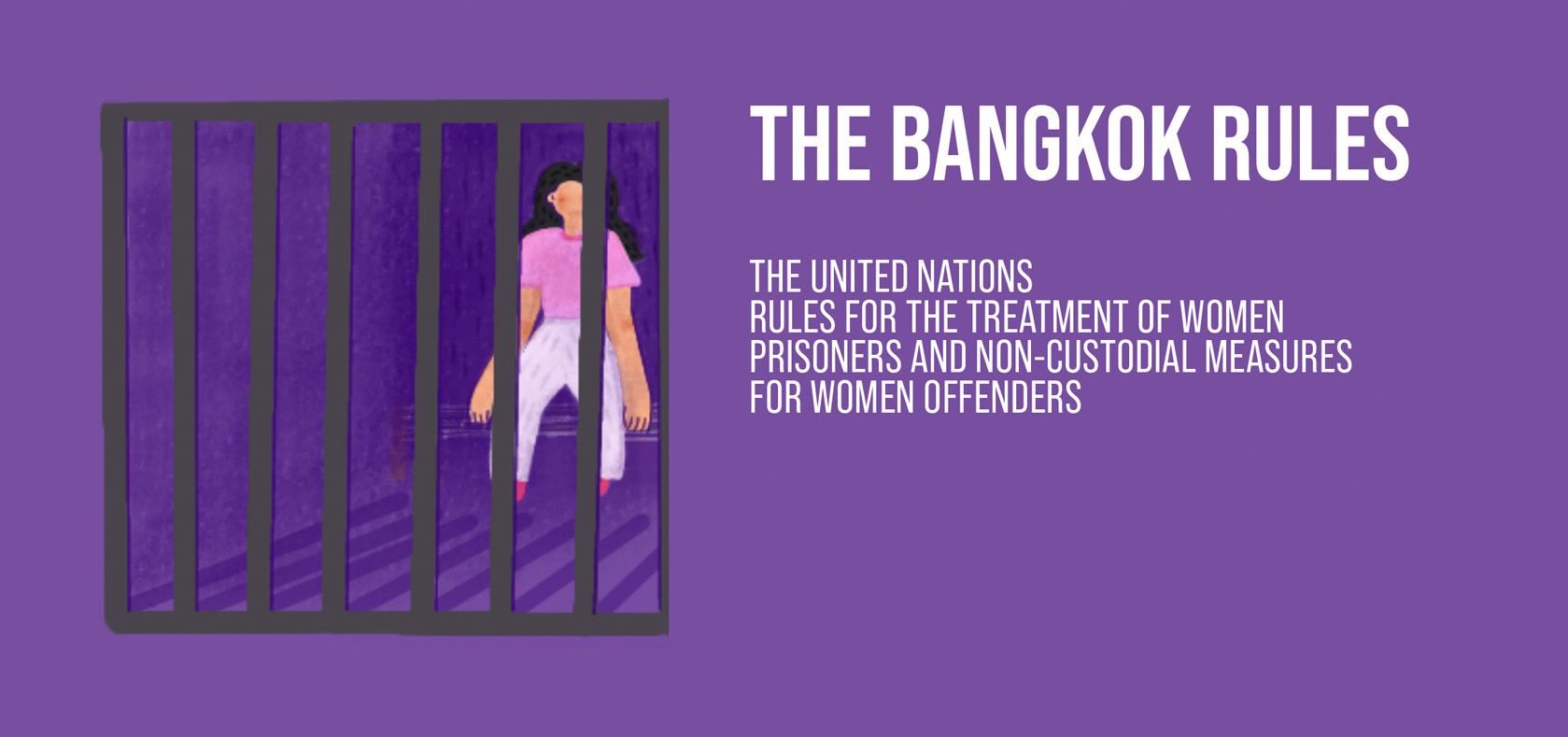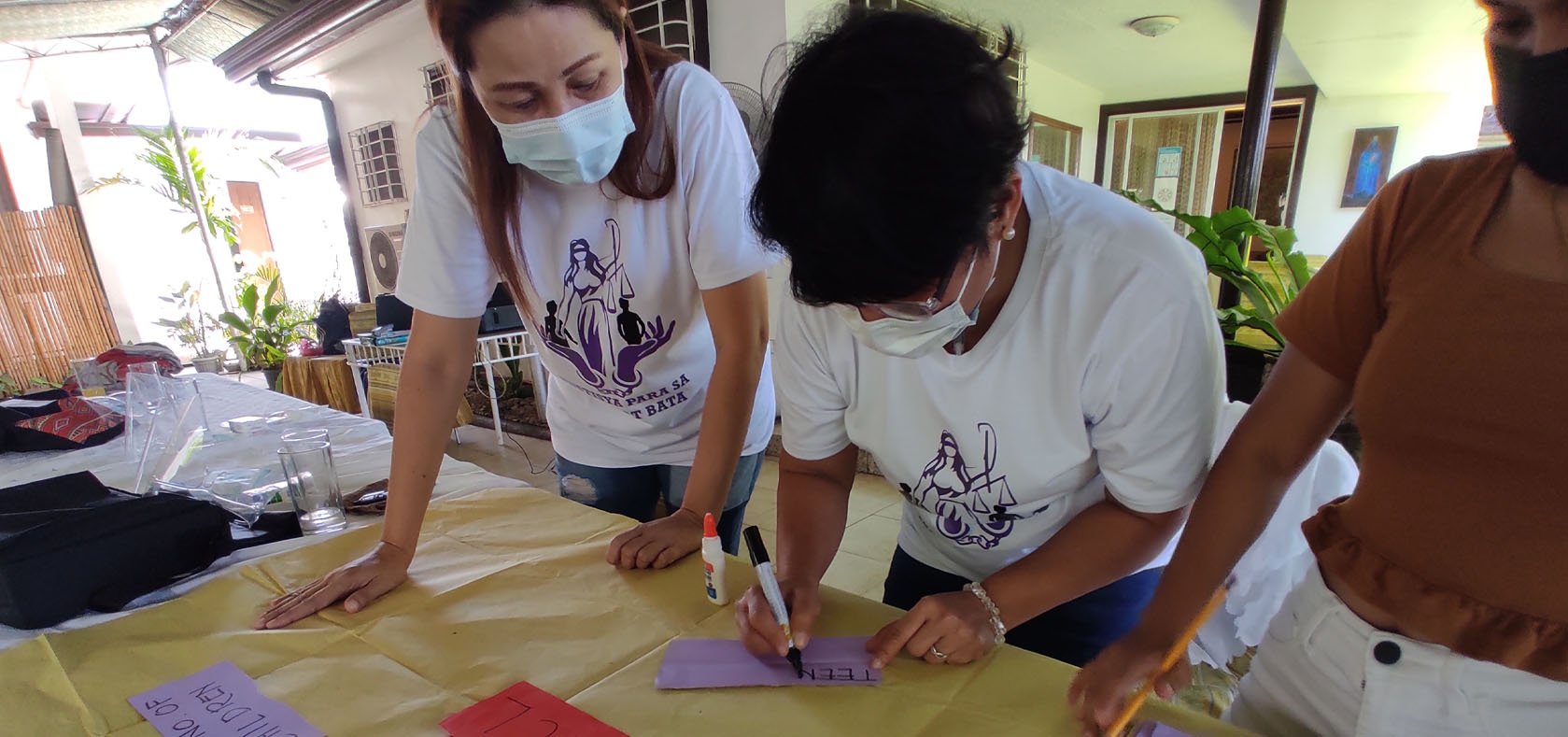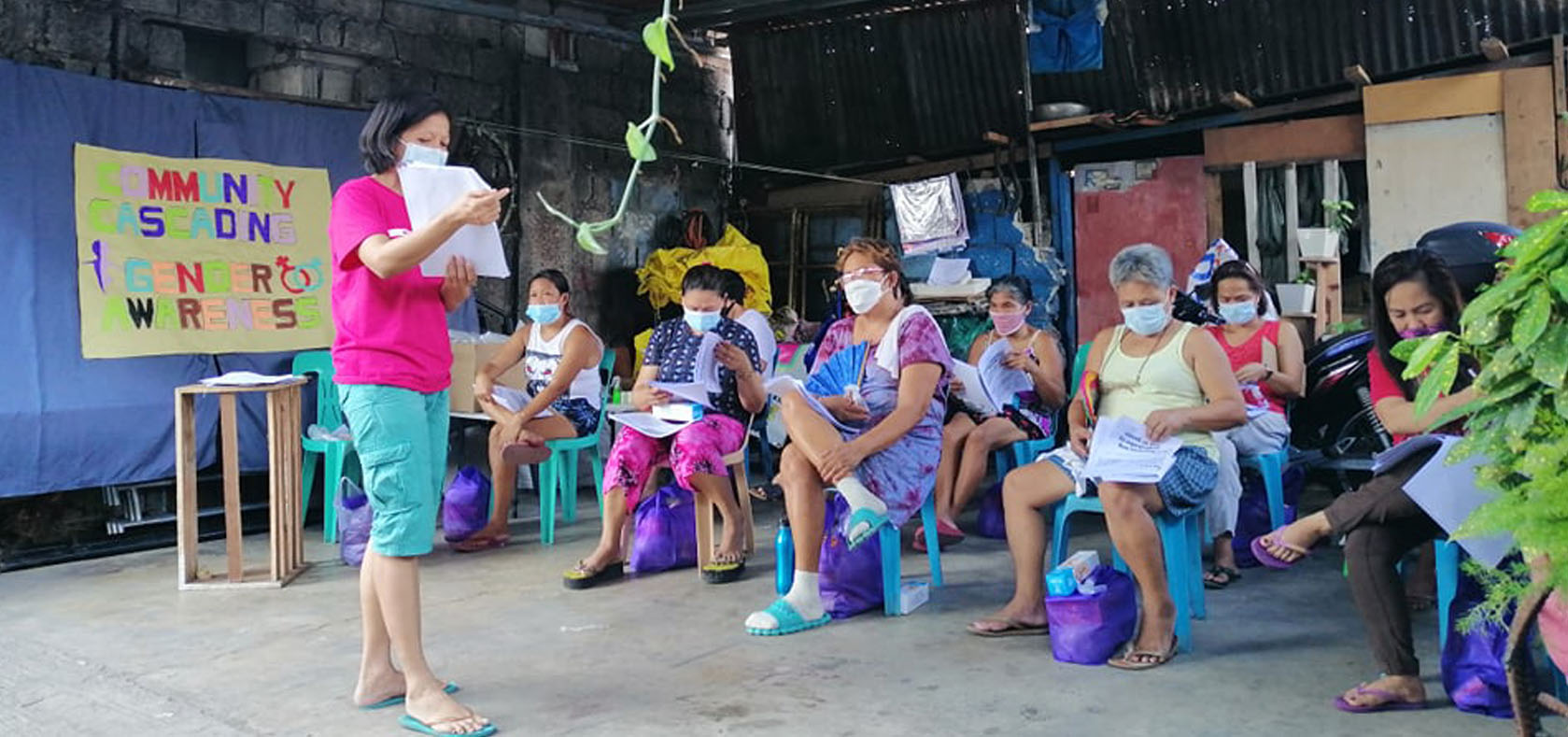The partners under the A2J programme team continue to promote non-custodial alternatives to imprisonment and the importance of addressing the socio-economic root causes to prevent women’s engagement in illegal activities as a coping strategy.
“In my three years here in detention, my case is still at the evidence stage”
—Taperla, the Mandaue City Jail Female Dormitory
A total of 3,966 women are either detained or working in penal facilities across the country, according to data from the Philippines Department of Justice obtained in June 2021. UN Women in collaboration with local partner StreetLawPh conducted capacity building for women in prison and jail personnel in the Philippine cities of Cebu, Mandaue and Lapu-lapu. The focus of the monthly trainings throughout 2021 was to raise awareness among both groups regarding gender-responsive and humane treatment of women in prison, as well as to increase their knowledge of women’s rights and international standards that apply to them including the Bangkok Rules.
This translation of the ‘Bangkok Rules’ was produced under the ‘Deliver of Women’s Legal Literacy and Access to Justice Services’ project in the Philippines. Read more
Women’s participation in community-based justice mechanisms
UN Women, in collaboration with the Partnership of Philippine Support Service Agencies (PHILSSA), implemented a series of paralegal trainings for community leaders to equip them with skills and knowledge to facilitate referral of cases. The 62 community leaders who participated in the trainings have received continuous support through the roll-out of legal clinics in the communities. At the legal clinic sessions, the community leaders discuss complex cases with the facilitators or receive technical assistance on justice procedures. While the community leaders were equipped with new skills to provide support to women in conflict with the law, the training also aimed to reduce negative perceptions and stigma associated with women and girls accused of breaking the law.
